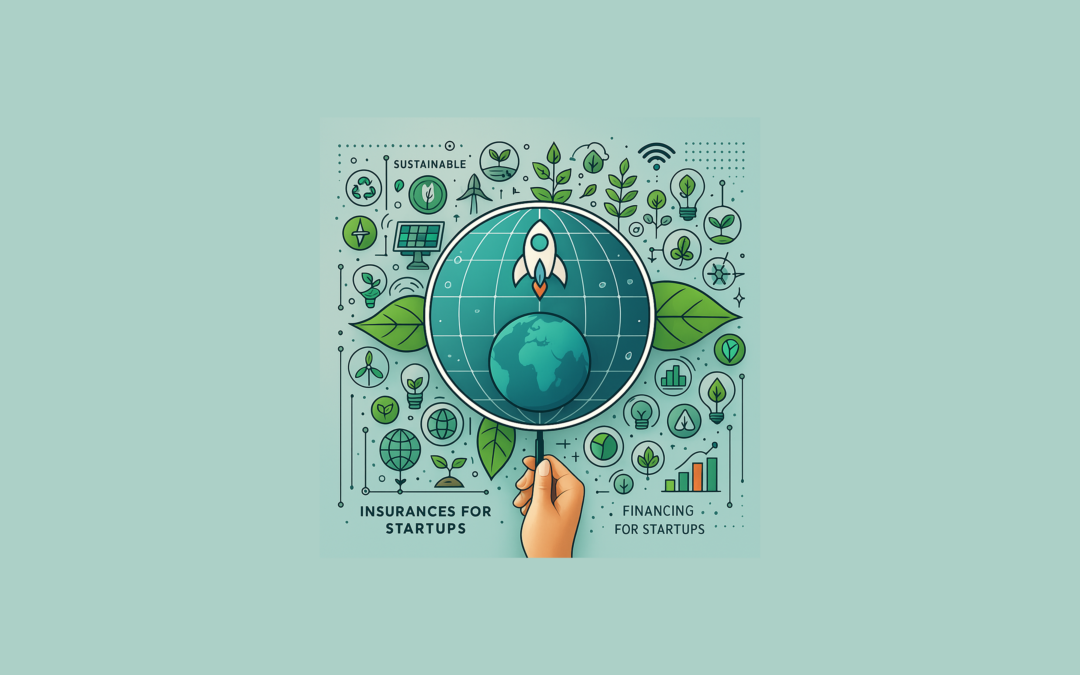Sustainability for Startups: Building a Responsible and Future-Proof Business:
In this course, Anne Jacobs will introduce you to the fascinating world of sustainability for startups. We will look at the basic concepts and principles and explore why it is crucial for companies, especially startups, to act sustainably.
The course starts with an introduction to the concept of sustainability and explains what exactly it means. We will learn about the different dimensions of sustainability and understand how they can impact startups. We will also look at the difference between ESG (Environmental, Social, Governance) and sustainability and discuss the importance of transparent communication.
Another important aspect we will cover is the phenomenon of greenwashing. We will learn how to recognise and avoid greenwashing to ensure that your startup is actually sustainable and not just appearing to be.
Do you need more information about transfer and sustainability at RPTU? Visit our transfer and innovation homepage.
Video 1: Sustainability for Startups
You will find a chapter overview at the bottom of the screen.
Video 2: Sustainable positioning
You will find a chapter overview at the bottom of the screen.
Video 3: Sustainability strategy
You will find a chapter overview at the bottom of the screen.
Further informations and content
Portals and Overview Pages on Sustainability
Federal Ministry for Economic Affairs, Energy, and Climate Protection (BMWK):
One of the main tasks of the BMWK is to improve the framework conditions for startups and to promote the establishment and development of innovative companies. This includes measures to strengthen the startup climate, promote business financing, and improve access to capital for startups. The ministry is committed to reducing bureaucratic hurdles and facilitating business startups.
https://www.bmwk.de/Navigation/DE/Themen/themen.html?cl2Categories_LeadKeyword=nachhaltigkeit
Federal Ministry for the Environment, Nature Conservation, Nuclear Safety, and Consumer Protection (BMUV):
One of the main tasks of the BMUV is to promote innovative solutions and technologies in the environmental and climate sector. The ministry supports startups engaged in environmental protection, renewable energy, resource efficiency, circular economy, and sustainable technologies. It offers various funding programs and financial support for startups developing eco-friendly and sustainable innovations.
German Energy Agency (dena):
dena also organizes platforms and events to promote exchanges between startups, established companies, and investors. These include startup competitions, conferences, and networking events. Through these activities, startups gain visibility and have opportunities to collaborate and develop partnerships.
https://www.dena.de/startseite/
StartGreen:
StartGreen is where the green startup community meets. The network hosts the largest collection of startups, investors, and startup supporters in the Cleantech and Green Economy sectors. The platform is open to all organizations in the green startup ecosystem, allowing users to create a free profile or search for potential partners.
Sustainability Council:
As an advisory body, the Sustainability Council focuses primarily on developing long-term strategies and concepts for sustainable development. These strategies may have implications for startups and their contribution to sustainability. The council may also publish information or recommendations relevant to startups on its website.
https://www.nachhaltigkeitsrat.de/?cn-reloaded=1
The Impact Hub:
Impact Hub Munich is part of a global network of innovation centers and coworking spaces aimed at supporting entrepreneurs, startups, and socially-oriented businesses. The organization promotes social and environmental change and offers resources, networks, and programs for entrepreneurs.
Additional Portals:
European Commission:
The European Commission is the executive body of the European Union (EU), consisting of representatives from EU member states. It is responsible for implementing EU policies, developing proposals for new laws and regulations, and monitoring compliance with EU legislation.
https://commission.europa.eu/index_de
German Environment Agency (UBA):
The German Environment Agency (UBA) is the federal authority responsible for environmental protection in Germany. As a specialized agency of the Federal Ministry for the Environment, Nature Conservation, and Nuclear Safety, it undertakes various tasks in environmental protection and sustainability.
UBA supports startups and businesses in the areas of environmental protection and sustainability through:
📍Consultation and information
📍Funding programs
📍Monitoring and research
📍Networks and cooperation
B.A.U.M. Network for Sustainable Business:
B.A.U.M. e.V. is a network of companies, institutions, and experts committed to sustainable development in business and society. B.A.U.M. also supports startups in the sustainability sector through various activities:
📍Consultation and coaching
📍Networking and exchange
📍Public relations and communication
📍Project funding
FAQ - Frequently asked questions
What does sustainability mean for a startup in concrete terms?
Many founders wonder whether sustainability is synonymous with “environmental protection.” However, sustainability encompasses three dimensions: ecological, social, and economic. For startups, this means not only focusing on CO₂ reduction, but also developing fair working conditions, responsible use of resources, and sustainable business models.
Why is it worthwhile for startups to focus on sustainability early on?
The question often arises: “Shouldn’t we focus on growth first?” Thinking about sustainability early on saves costs later, facilitates access to funding, and makes you more attractive to investors. In addition, customers, partners, and employees have increasingly high expectations when it comes to sustainable practices.
What is the difference between sustainability and ESG?
Sustainability is a comprehensive concept that describes how companies take responsibility for the environment, society, and the economy. ESG (Environmental, Social, Governance) are specific criteria that investors or partners use to measure sustainability. ESG is therefore more standardized and often geared toward capital markets.
How can I avoid greenwashing?
Sustainability quickly loses credibility when companies only use buzzwords. To avoid greenwashing, you should communicate honestly about progress and limitations. Small, genuine steps (e.g., reducing packaging waste) are more convincing than big, vague promises.
How do I communicate sustainability authentically?
Transparency is important: talk openly about your goals, but also about what has not yet been achieved. Show what initiatives you have launched, what metrics you are measuring, and how you want to improve. This will help you build trust with customers and partners.
How do I find the right sustainability topics for my startup?
After completing the module on sustainable positioning, the question often remains: “Where do we start?” The best place to start is with an analysis: What impact does your business model have on the environment, society, and the economy? This will reveal the key topics to focus on. It is important not to try to do everything at once, but to set priorities.
Who should be involved in developing a sustainability strategy?
Many founders ask, “Is it enough for management to set the tone?” No. Sustainability only works when employees, partners, and sometimes even customers are involved. This leads to realistic measures and acceptance within the team.
How do I set up a roadmap for sustainability?
A roadmap describes which steps you take and in what order. Start with short-term measures (e.g., reducing energy consumption), add medium-term goals (e.g., making the supply chain more sustainable), and formulate long-term visions (e.g., CO₂ neutrality). It is important to regularly check whether the measures are having an effect.
How do I ensure that sustainability doesn’t just remain a project?
A common thought is: “We’re launching an initiative – and then what?” Sustainability must become part of your corporate strategy. This means making goals measurable, defining responsibilities, and conducting regular re-evaluations. This way, sustainability becomes a continuous process.
How do you develop a comprehensive sustainability strategy?
The strategy combines vision and concrete measures. It should include the following steps: 1) Analysis of your impact, 2) Definition of values and goals, 3) Setting priorities, 4) Development of measures, 5) Measurement and reporting. It is important to start small and expand step by step.

Hi, i'm Lukas
and I manage the e-learning program. Do you have any further questions? Feel free to contact me via email: theisen@gruendungsbuero.info

